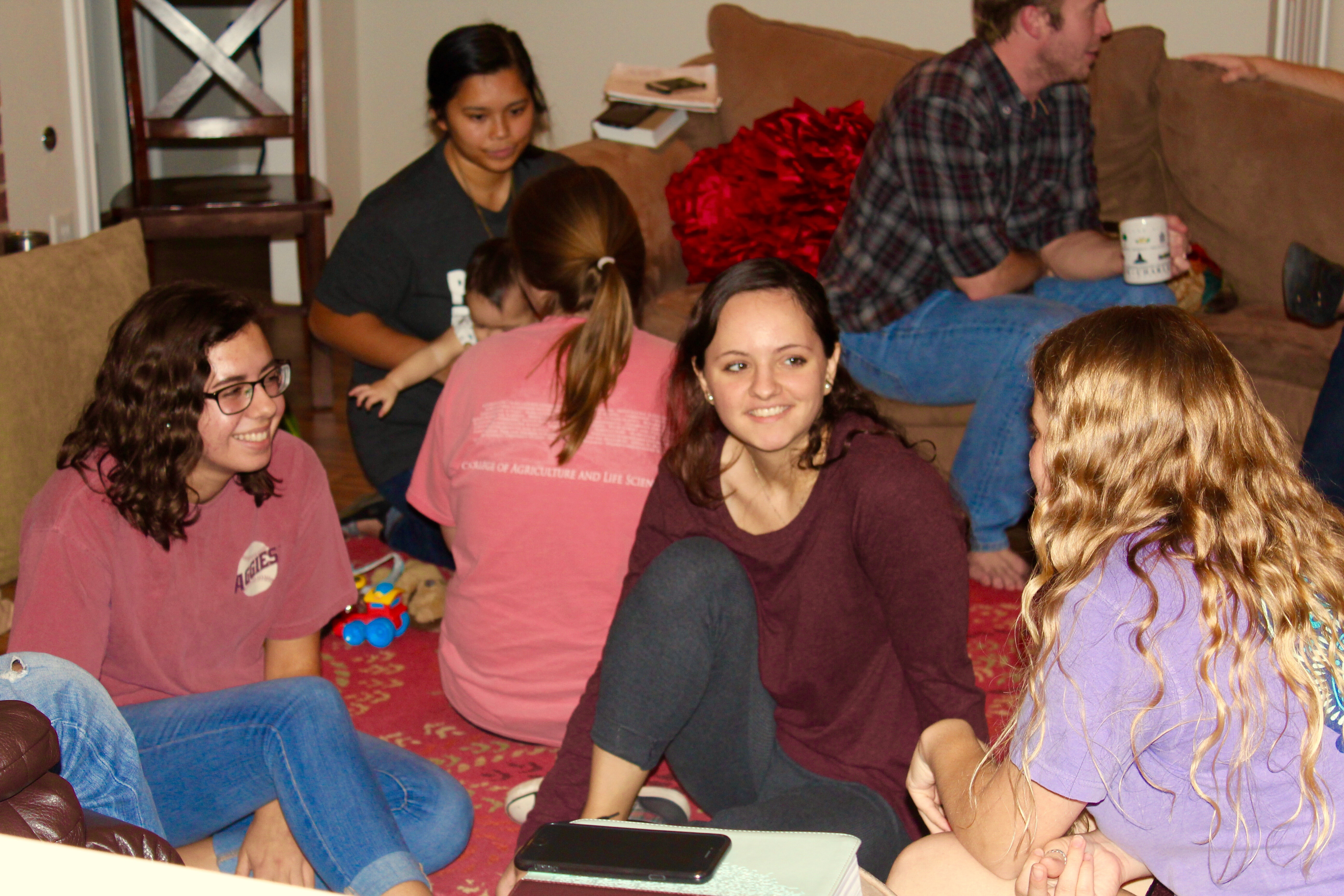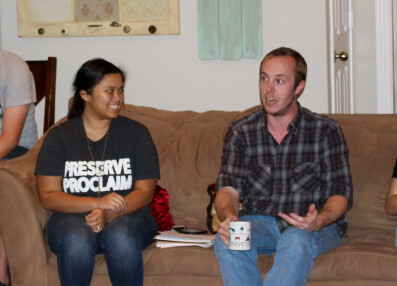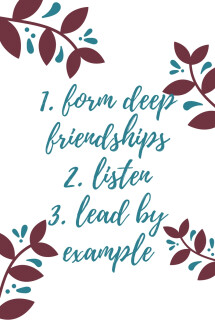Contact Us
- Phone: 979-268-8900
- Email:
- Address: 700 University Drive East, Ste. 115, College Station, TX 77840


It seems almost impossible to watch the news or go online without seeing something about racial issues in our nation. Tensions are high, and it feels difficult and stressful to navigate through all of the differing opinions about racism, equality, and privilege. Several members at New Life are working together to pursue racial reconciliation in a gospel-centered way, seeking to listen and understand the issues at hand and take action towards unity. New Life member Amanda Tarpley helped break down what racial reconciliation is, and why as followers of Jesus we should be concerned with it.
“I think it’s really just working to break down the barriers, both in our own hearts, and in society that keep us from being in friendship with people of different races. It’s important because while we know deeply that God created ALL people in His image, with intrinsic worth and value, the world often shows us a different message- that some people are “lesser,” don’t deserve compassion or dignity, and should be avoided. There is no way that we can love people, share the gospel and enjoy fellowship in the church like God commands if these kinds of attitudes creep into our hearts.”
As New Life’s body consists of primarily white members, it can feel difficult to navigate this and truly empathize with people of color when they are not always a part of one’s immediate context. Angel Kenney has been a member at New Life since 2014, and brings a helpful perspective. Born in the Philippines, she moved to the States with her family when she was three years old. As a non-white member of New Life, she can offer insight on what it feels like to worship alongside many people who don’t look like her or share the same culture and background.
 “The first time I ever visited New Life, it seemed like I was the only non-white person attending the service,” Kenney said. “I’m aware of when I go any place and recognize that I’m the only person who looks like me. It’s lonely to feel different from anyone else on a surface level. When interacting with people, it’s hard not to wonder if how I look is influencing how they think, speak, or behave around me. There’s always a sense in which I feel pressured to conform to the culture of the church. There’s an expectation to understand and follow cultural norms and a fear that violating those norms further isolates me.”
“The first time I ever visited New Life, it seemed like I was the only non-white person attending the service,” Kenney said. “I’m aware of when I go any place and recognize that I’m the only person who looks like me. It’s lonely to feel different from anyone else on a surface level. When interacting with people, it’s hard not to wonder if how I look is influencing how they think, speak, or behave around me. There’s always a sense in which I feel pressured to conform to the culture of the church. There’s an expectation to understand and follow cultural norms and a fear that violating those norms further isolates me.”
She went on to say that these things are not specific to New Life, but issues she is challenged with on a daily basis and that she has faced in many different churches since living in the US.
So how do we bridge this gap? What can we do as a majority white church to not isolate, but welcome people who don’t look like us into our body? According to Kenney, conversations like this are a good first step.
“While it’s impossible for any church to address every problem in the community, we take it upon ourselves to be sensitive to the needs of those around us, be passionate about addressing injustice, and to remember that the kingdom of heaven will consist of peoples of all nations. Be aware of and reflect on your biases and prejudices. Be bold in love by correcting friends or family who say or do something racist or offensive. Be bold to apologize if you make the same kind of mistake or misstep. Have compassion. Be aware of what’s going on in the world and don’t discount the difficulties of being part of a minority group.”
Pastor Nathan Forbes also suggested ways we as New Life members can specifically begin working toward racial reconciliation.
“My hope is that we would be faithful. At first, faithfulness looks like listening and learning with humility. Eventually, faithfulness will inevitably lead to mindset shifts and life change to pursue reconciliation in our city.”
 He had three suggestions on how to actively pursue this. First, form deep friendships. “If you view racial reconciliation as a project, you might volunteer, serve, and make acquaintances, but for true healing we need true friendships to flourish.” Second, he encouraged us to listen. “As New Life gathers to discuss and learn together, join the conversation with a willingness to learn and change.” And last, to lead by example. “For those most passionate about racial reconciliation, there is a temptation to look with contempt on others who don’t share the same conviction. Have gracious conversations with New Life members. Provide opportunities for friends at New Life to meet friends of yours of different ethnicity. Walk in obedience and invite others to join you.”
He had three suggestions on how to actively pursue this. First, form deep friendships. “If you view racial reconciliation as a project, you might volunteer, serve, and make acquaintances, but for true healing we need true friendships to flourish.” Second, he encouraged us to listen. “As New Life gathers to discuss and learn together, join the conversation with a willingness to learn and change.” And last, to lead by example. “For those most passionate about racial reconciliation, there is a temptation to look with contempt on others who don’t share the same conviction. Have gracious conversations with New Life members. Provide opportunities for friends at New Life to meet friends of yours of different ethnicity. Walk in obedience and invite others to join you.”
As difficult as this conversation feels, how encouraging it is that we serve the God of the universe who works all things according to His perfect plan. Regardless of our skin color or background, those of us who are followers of Jesus can take comfort in this: